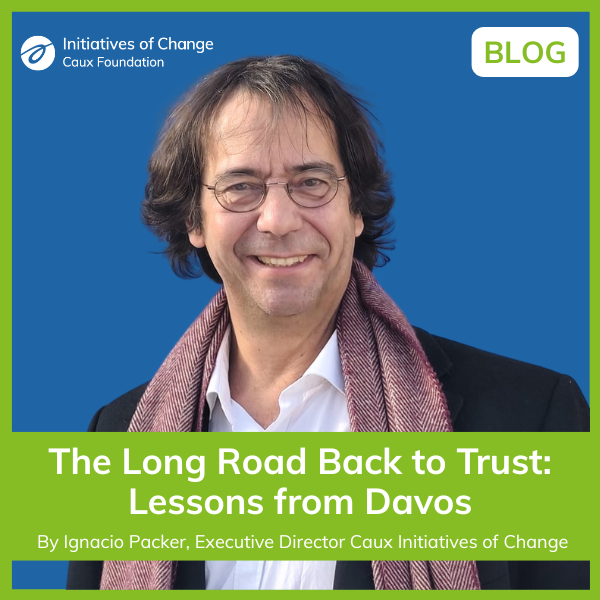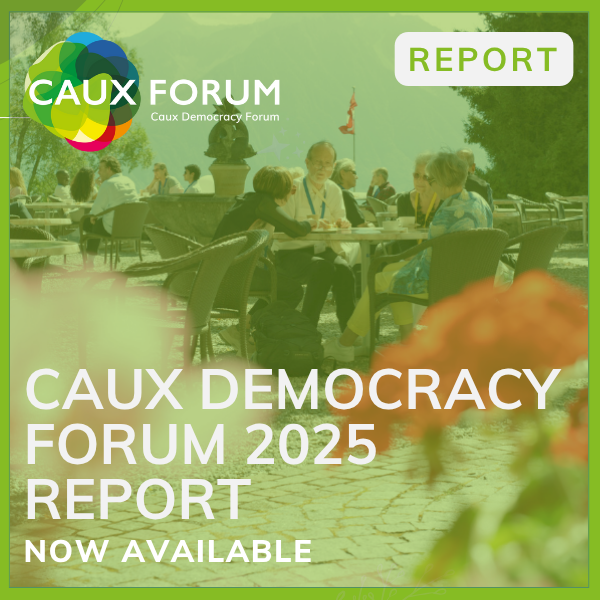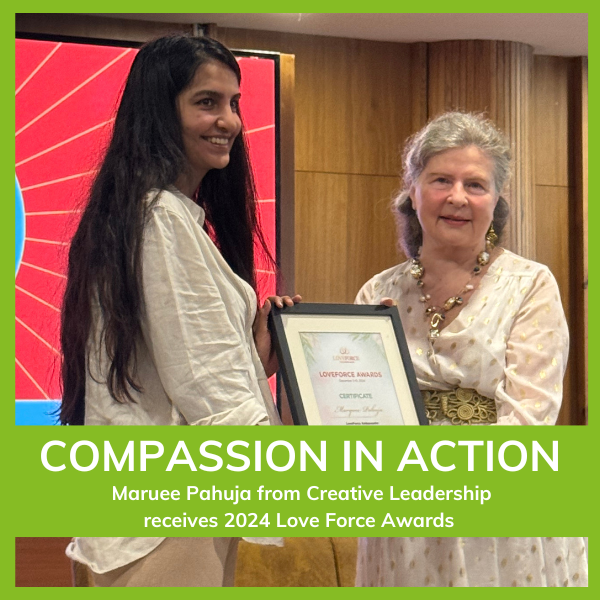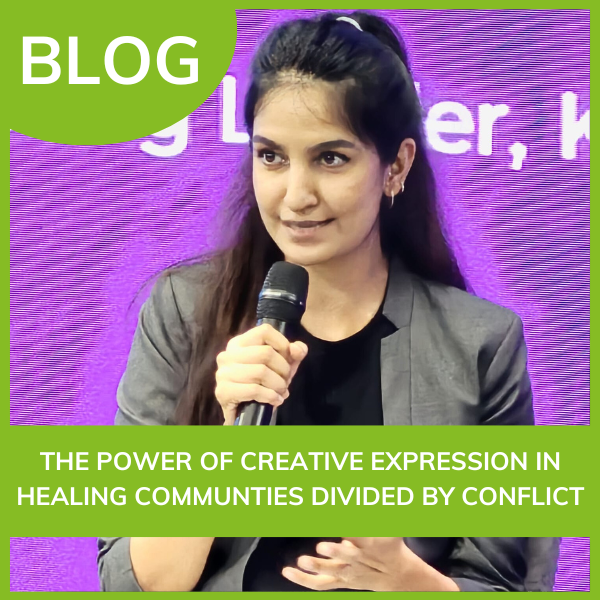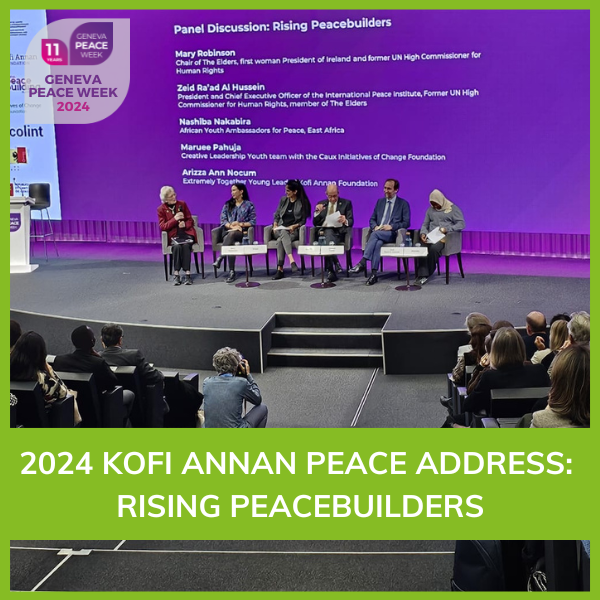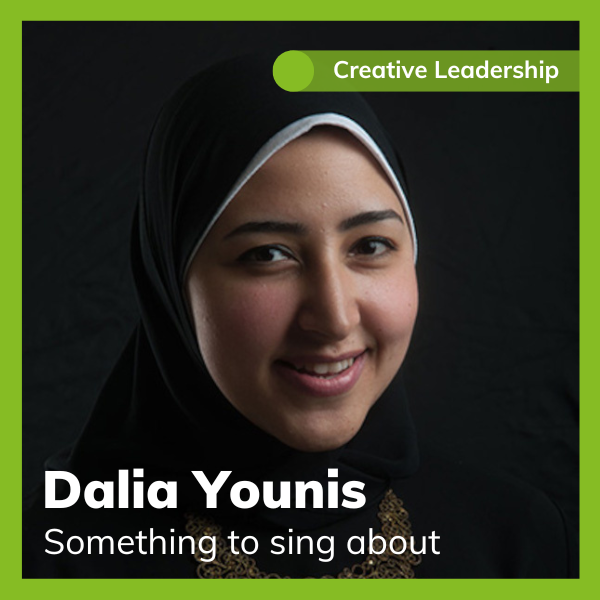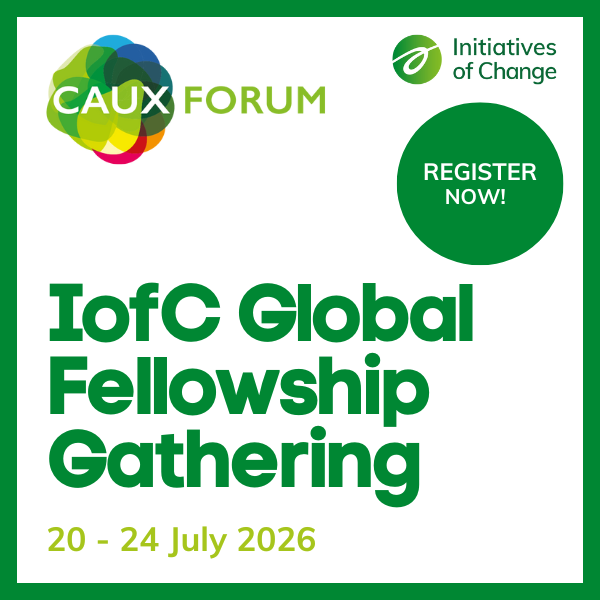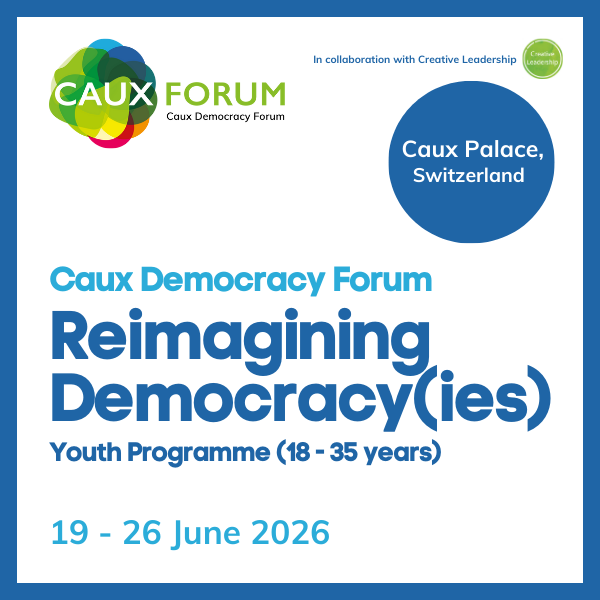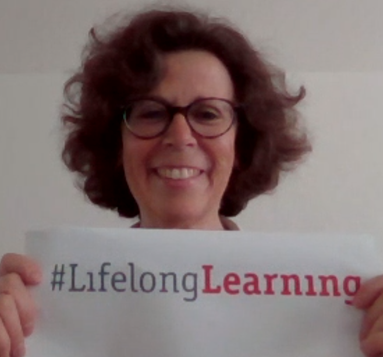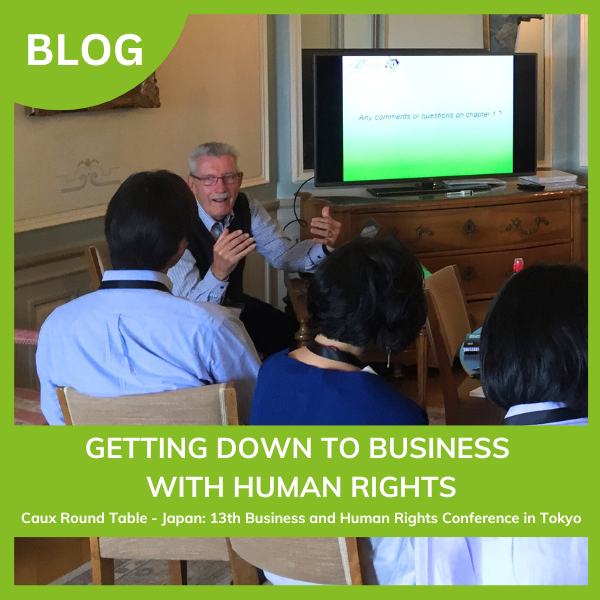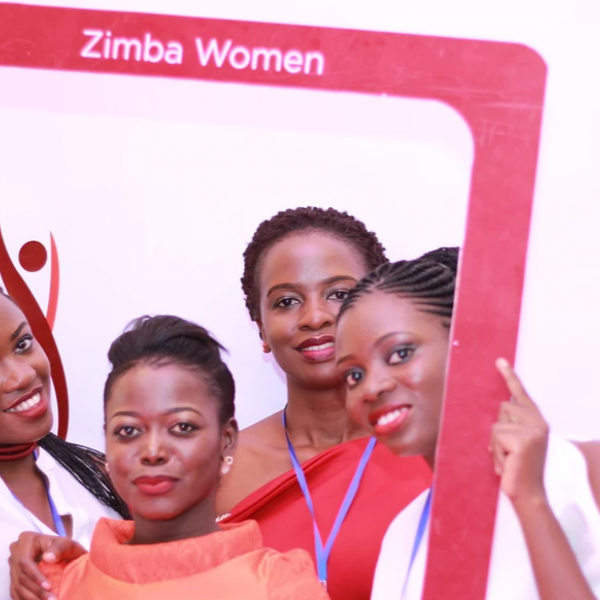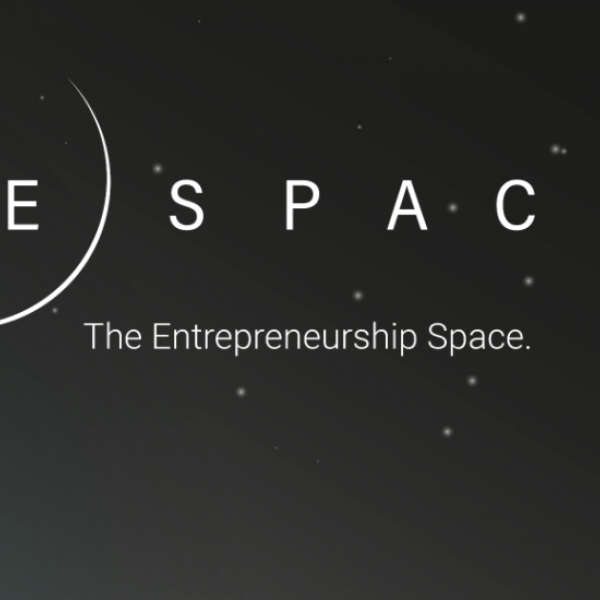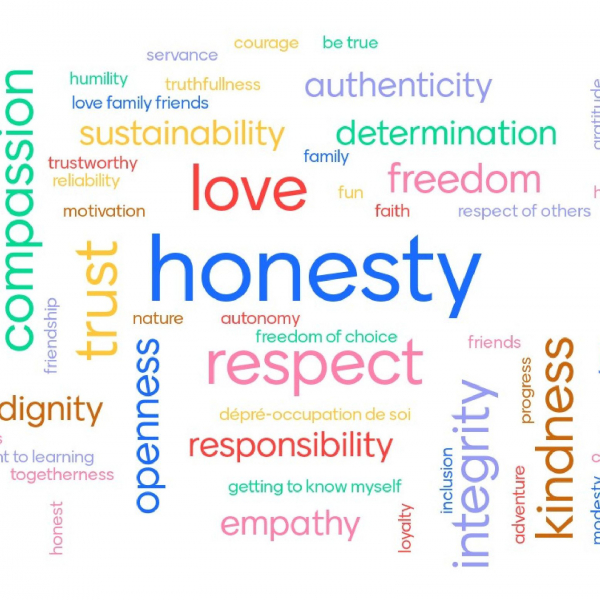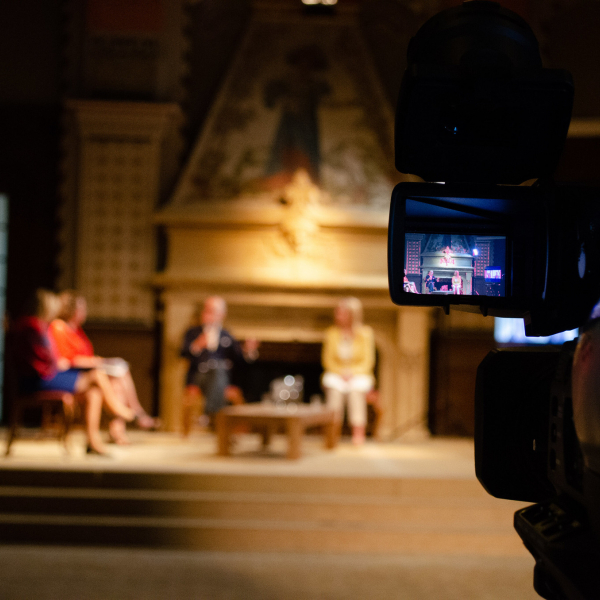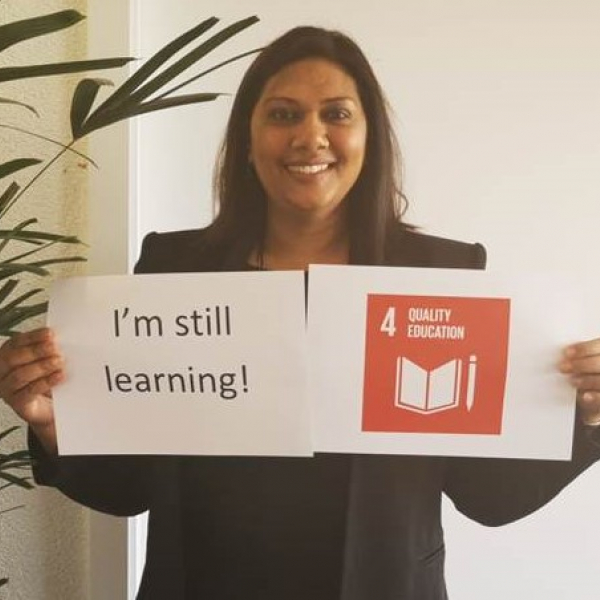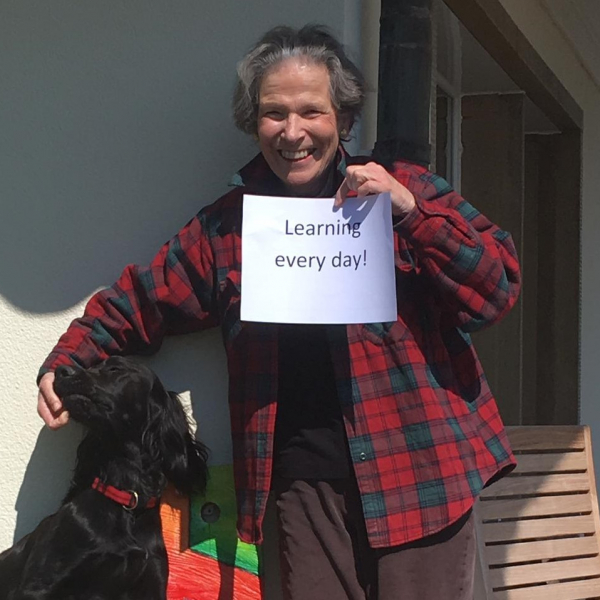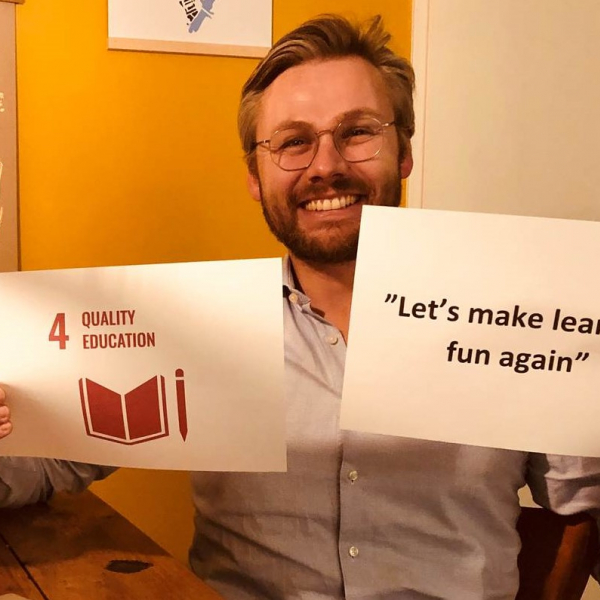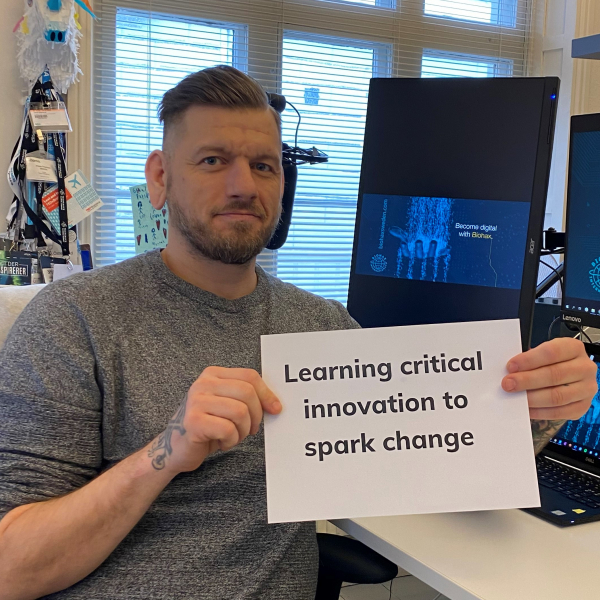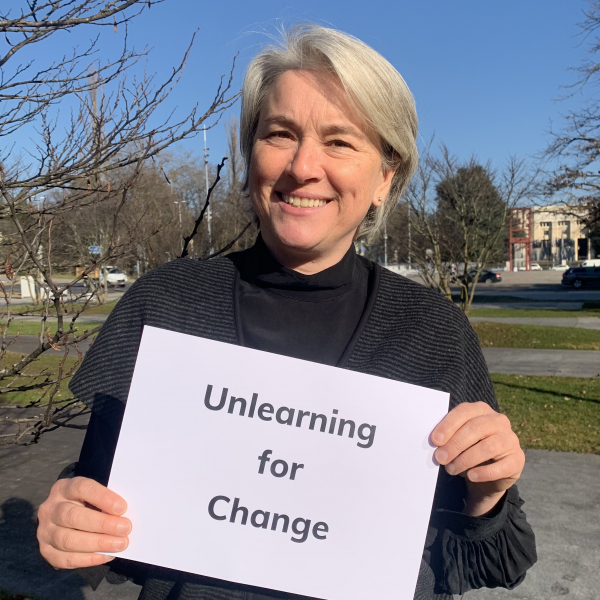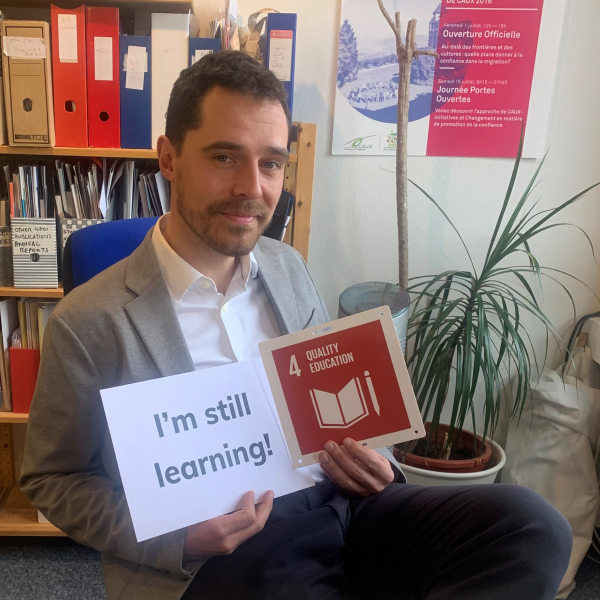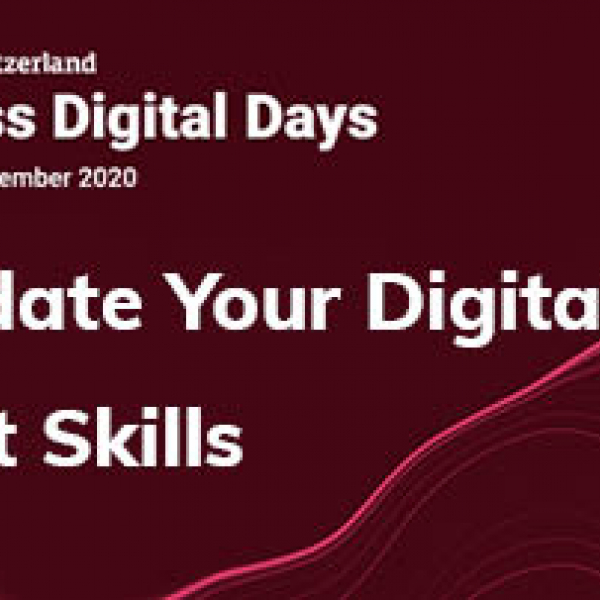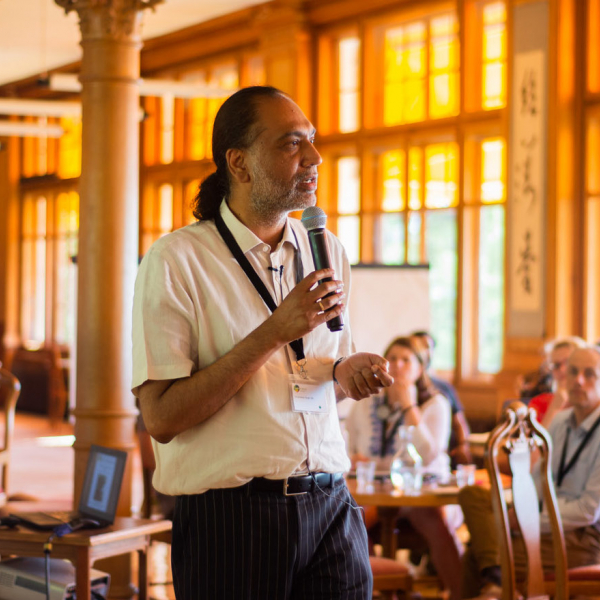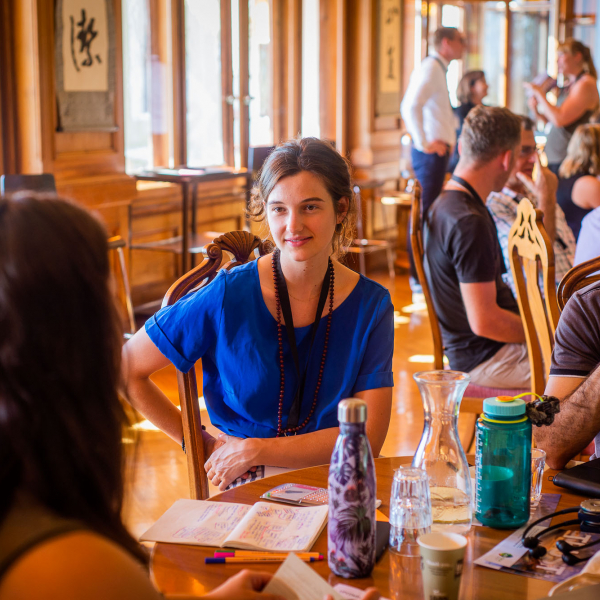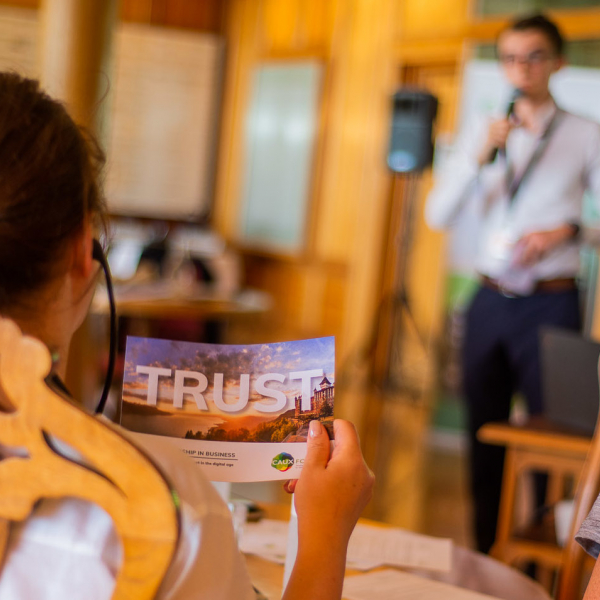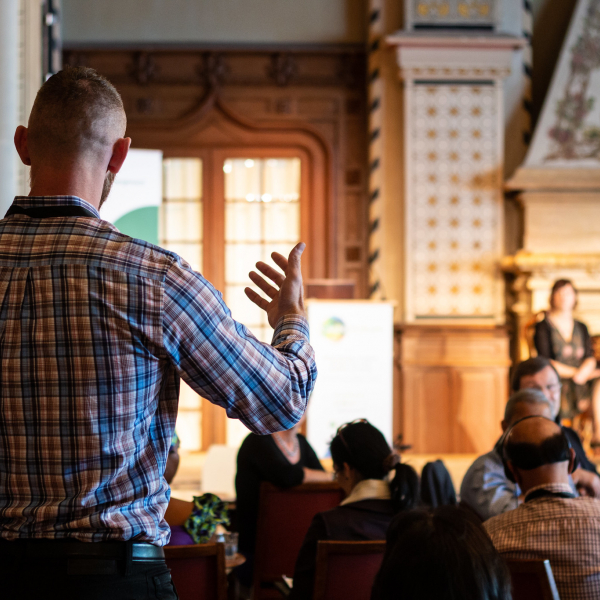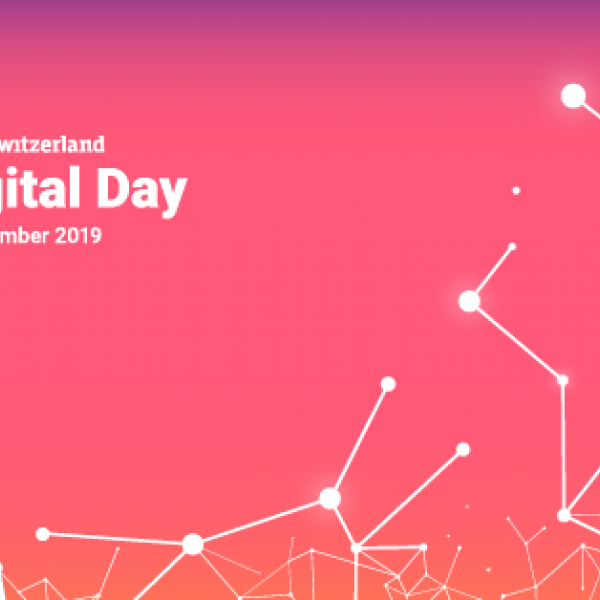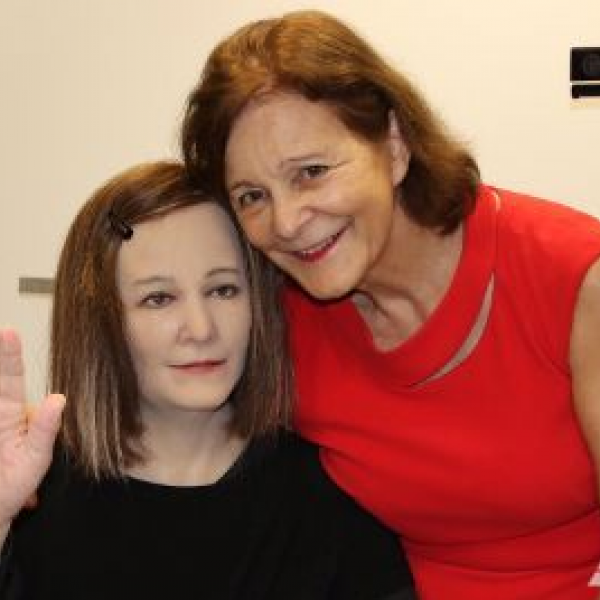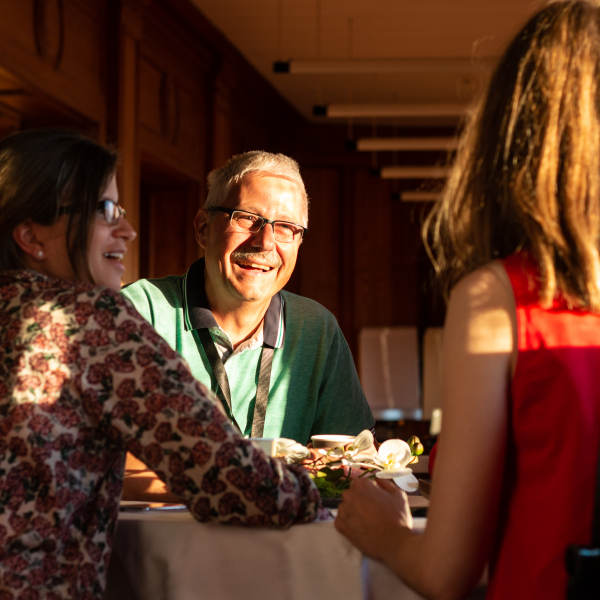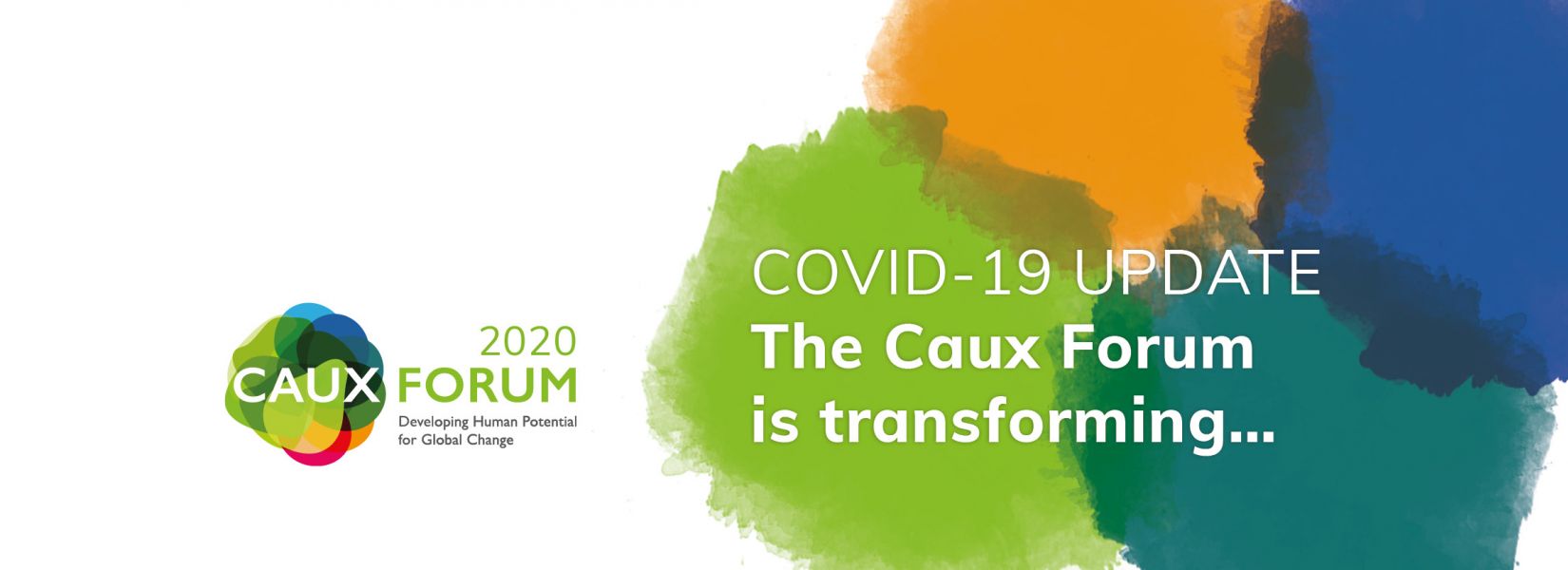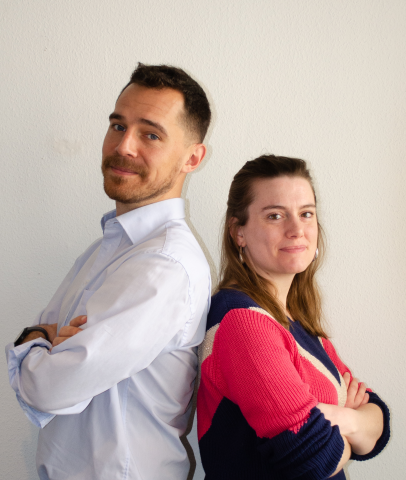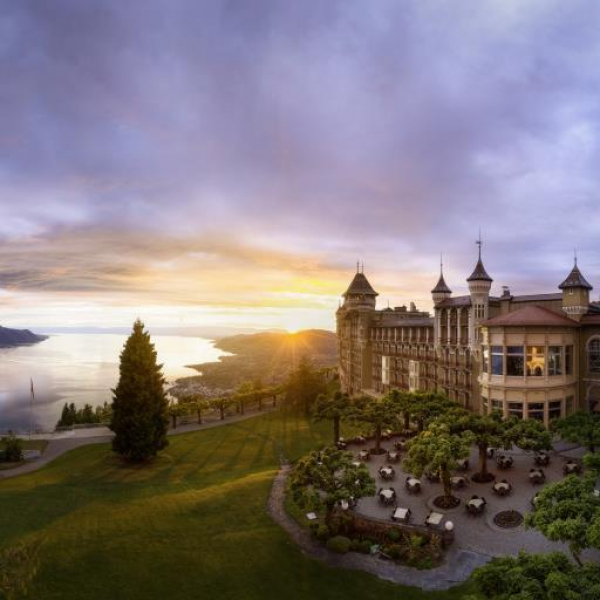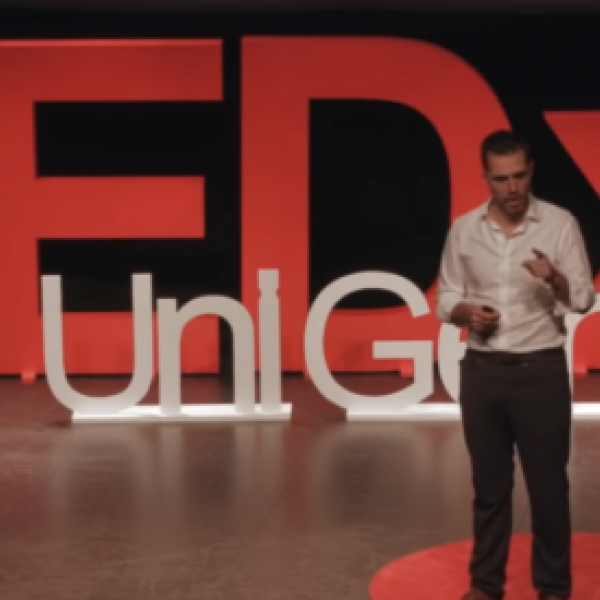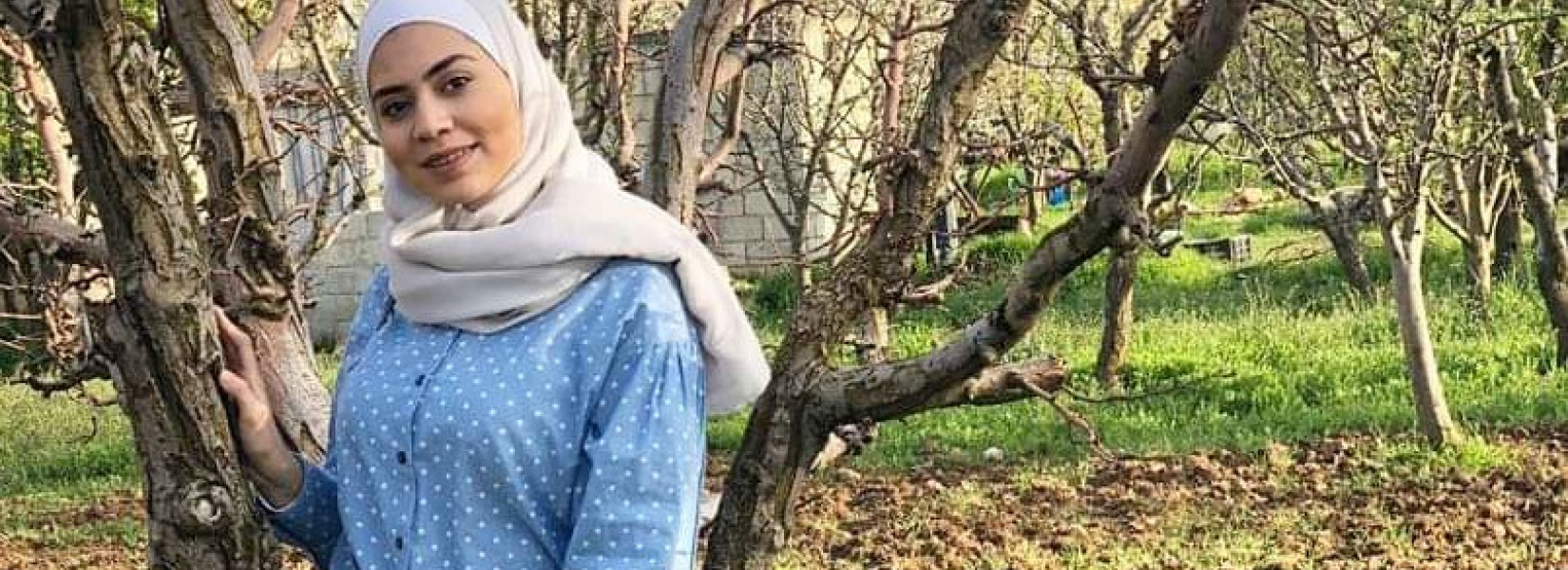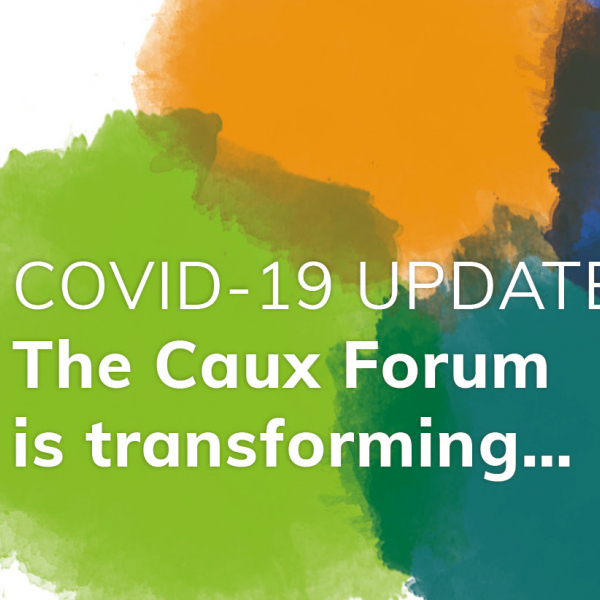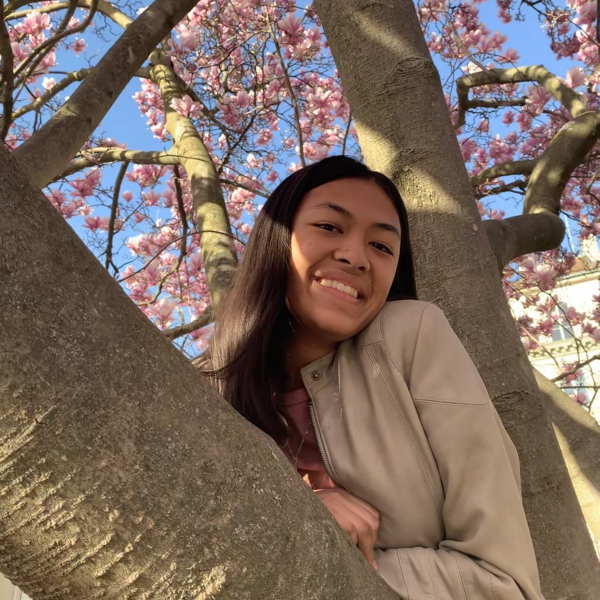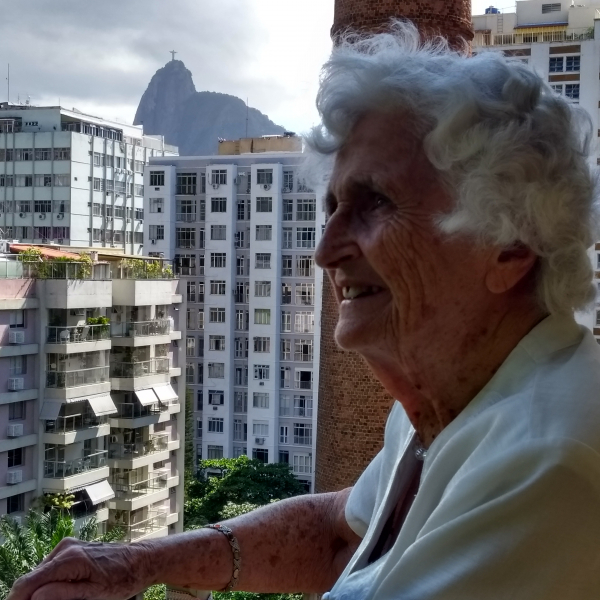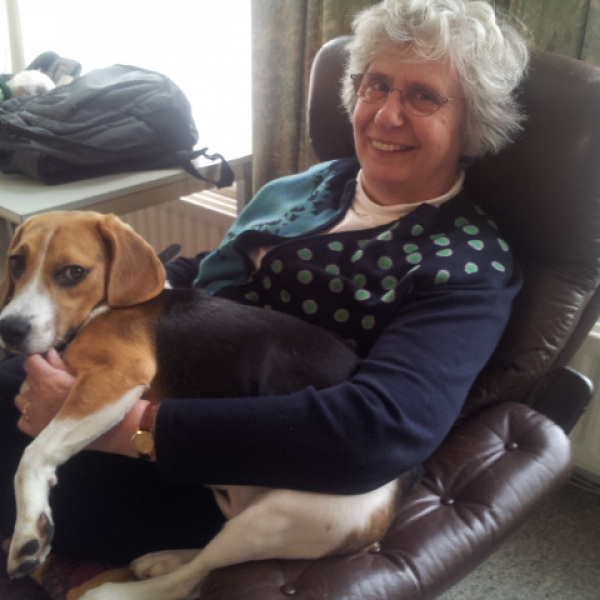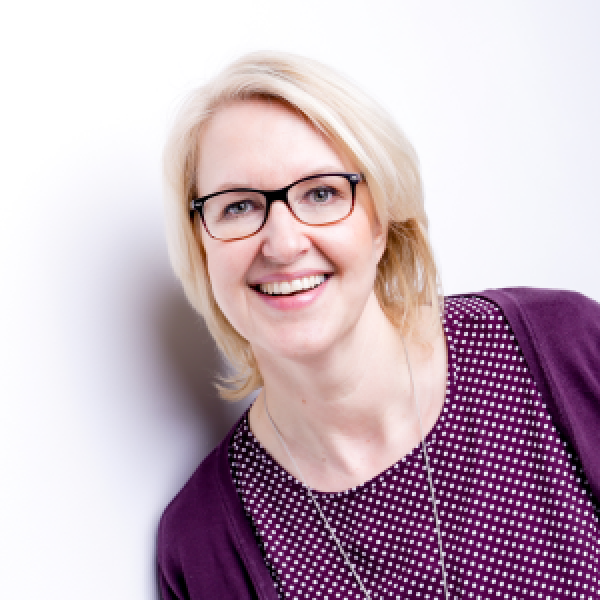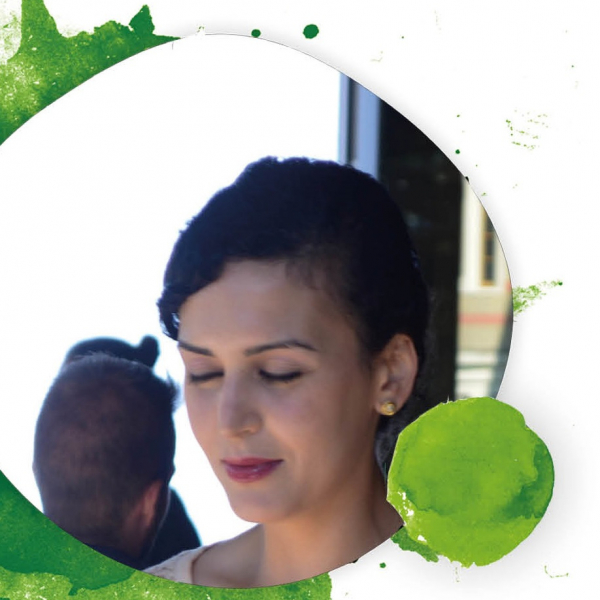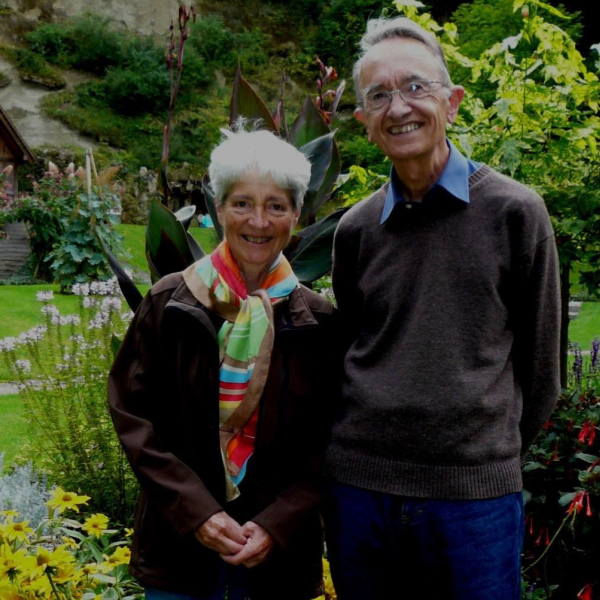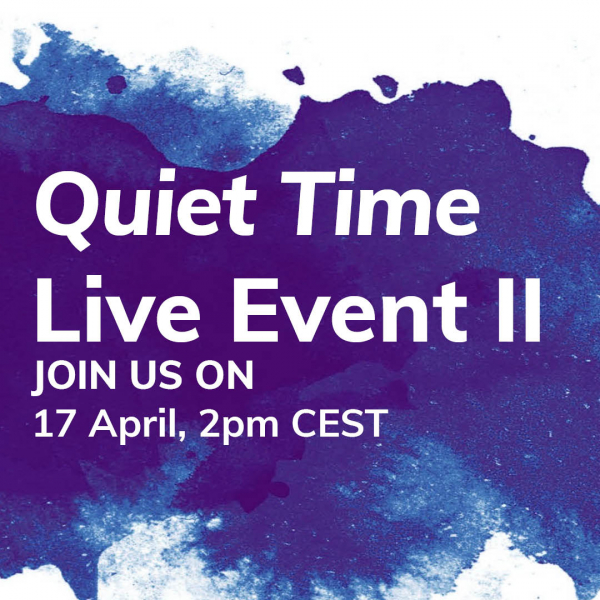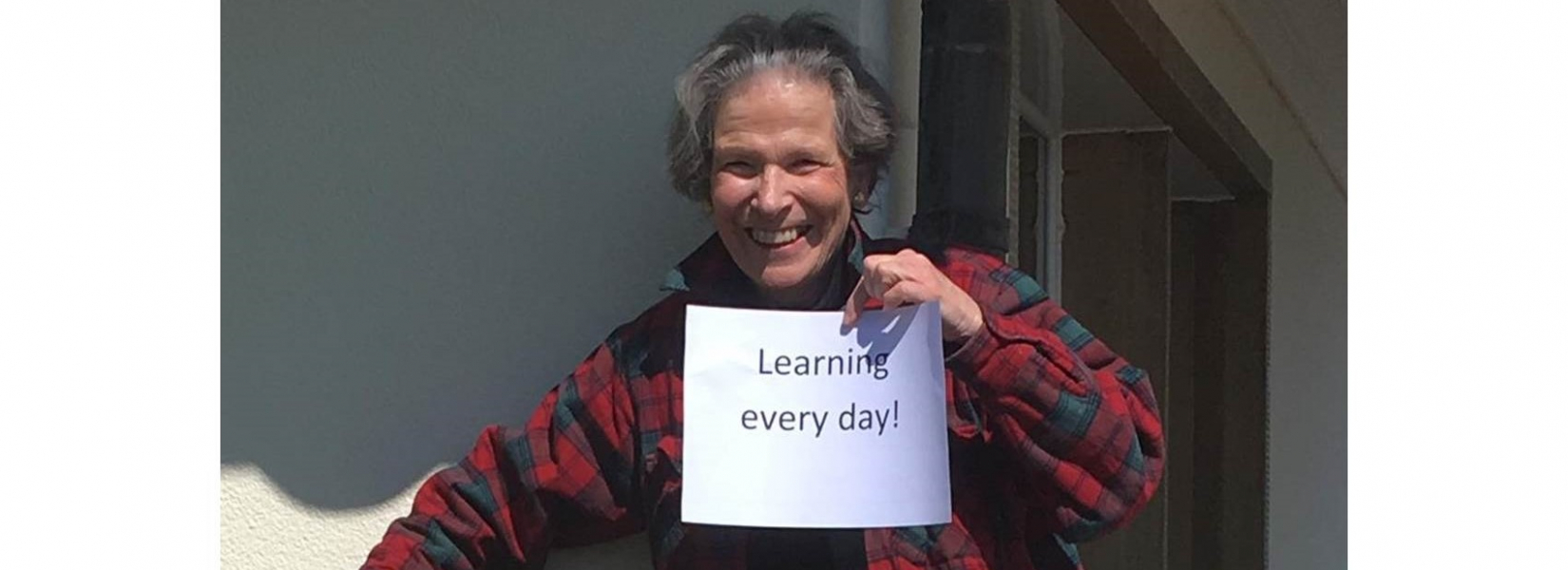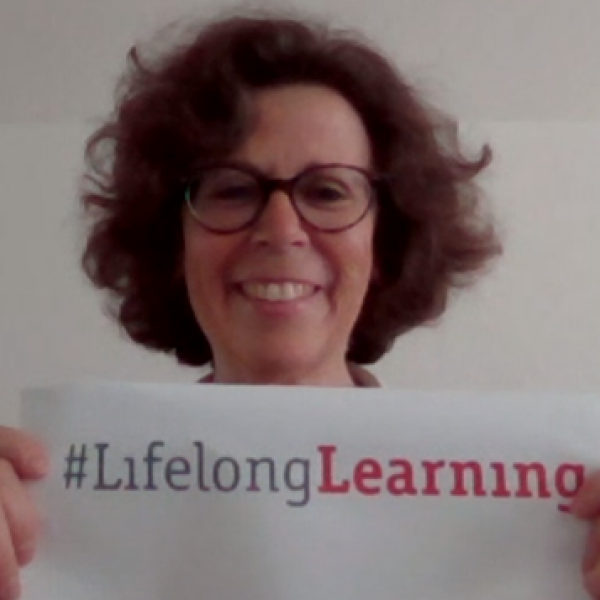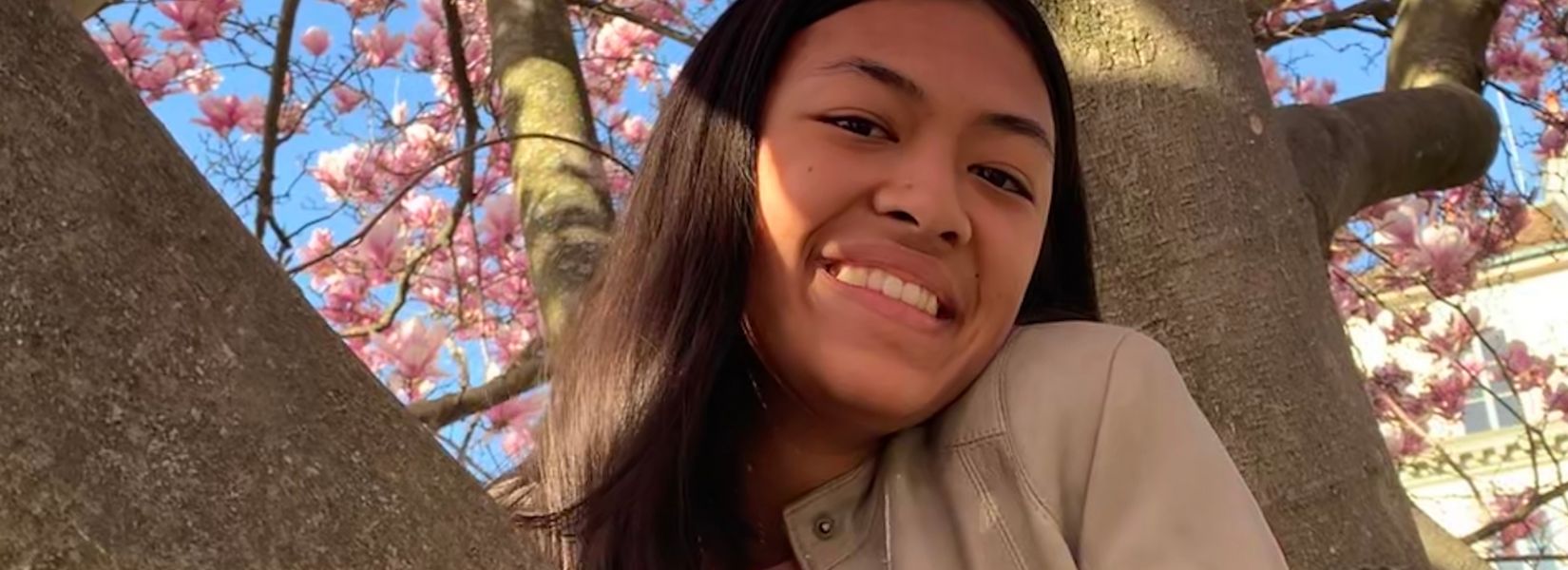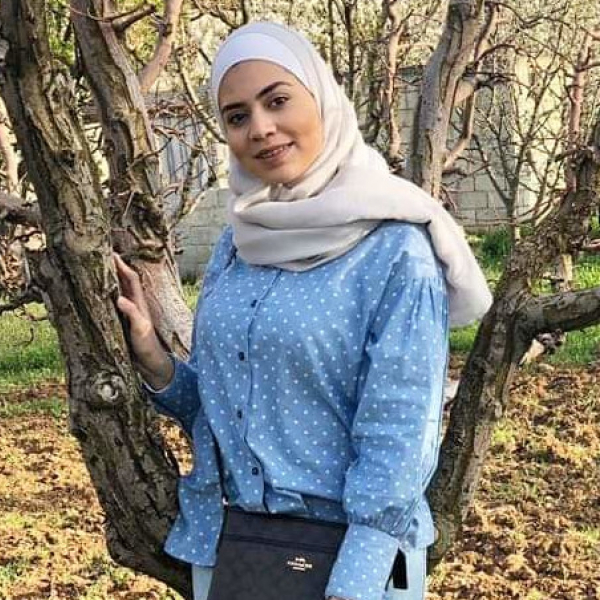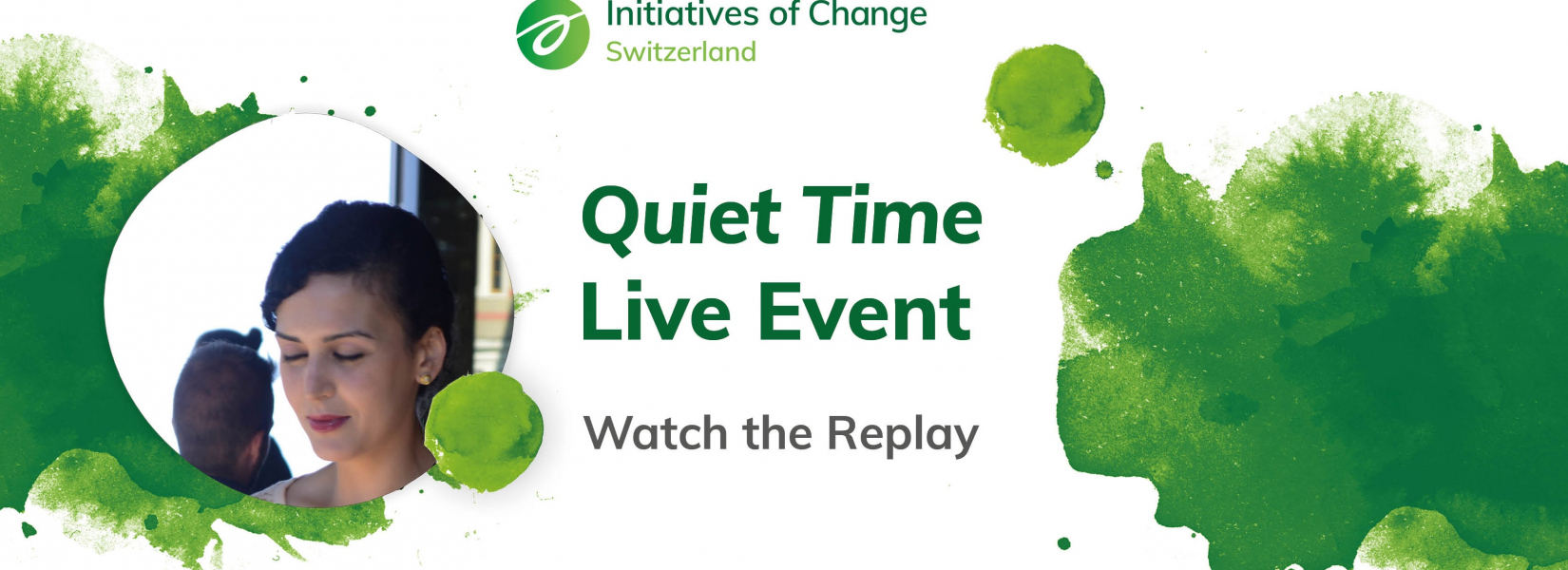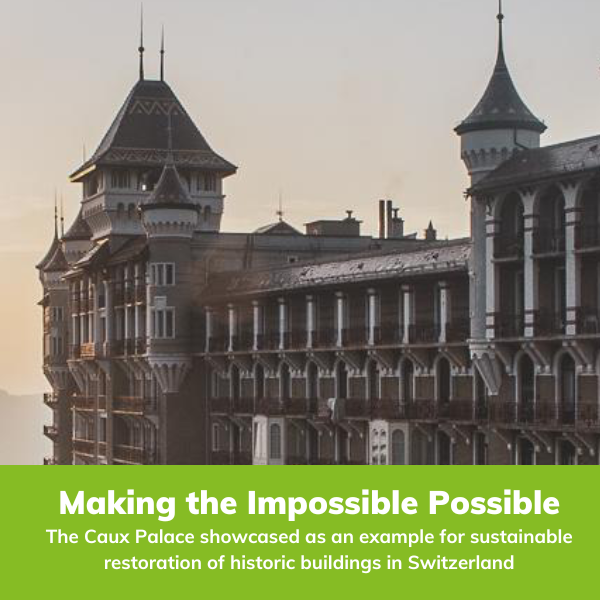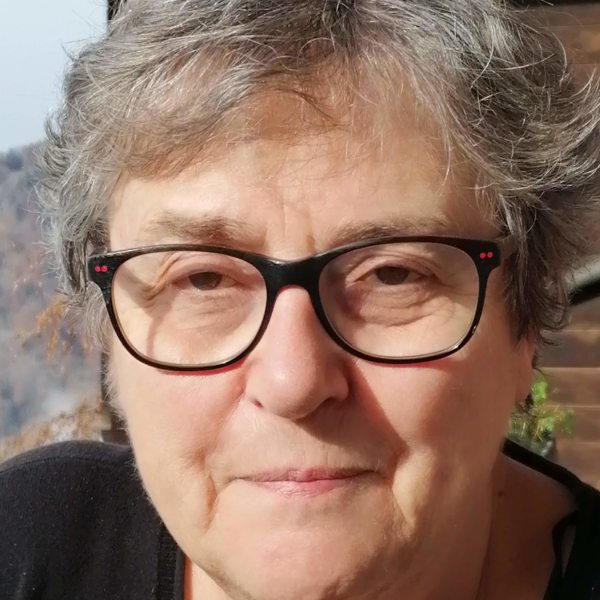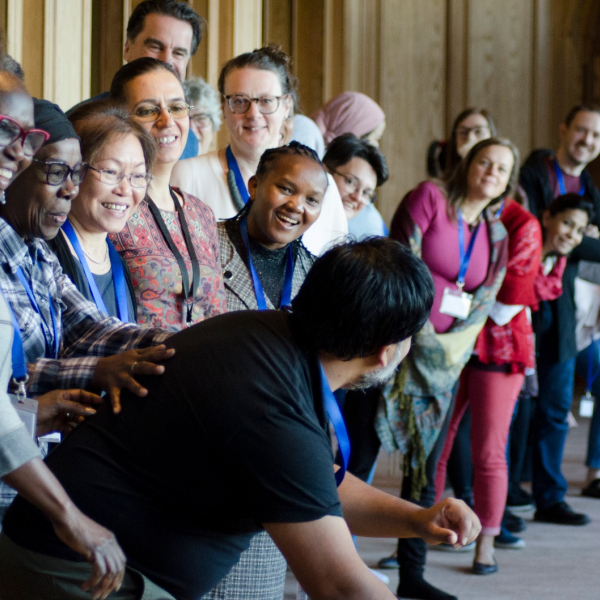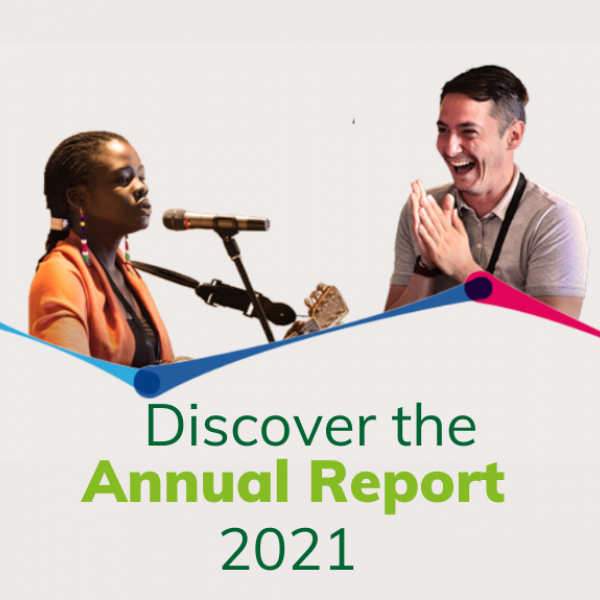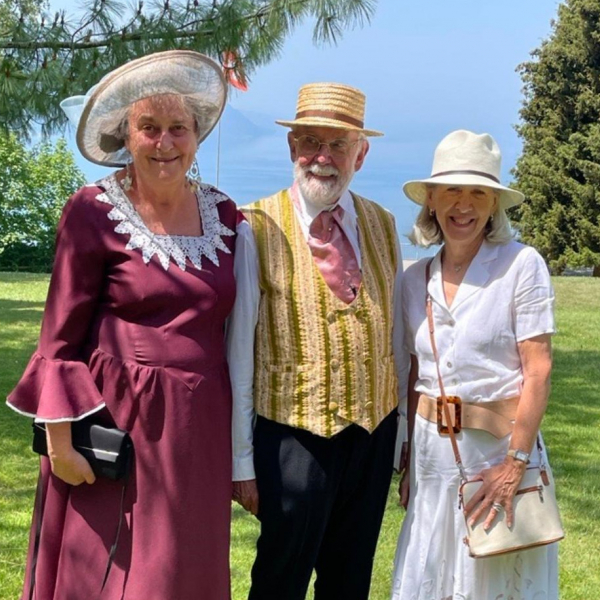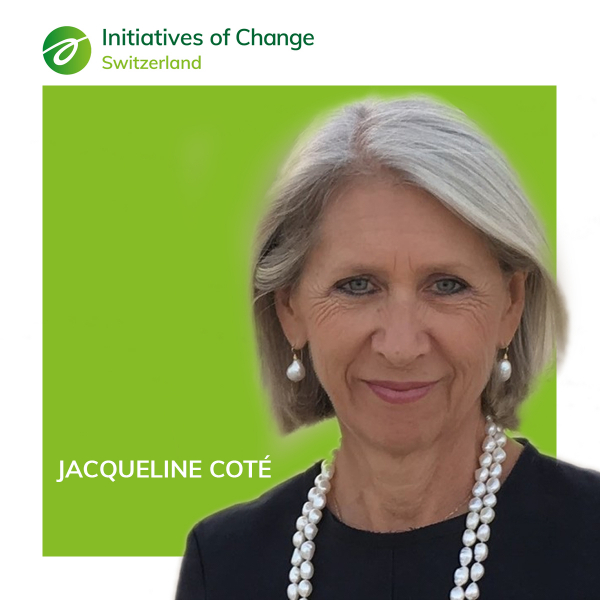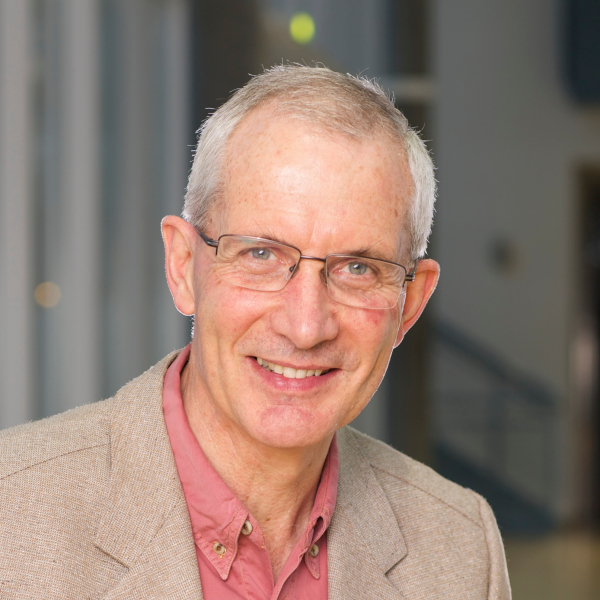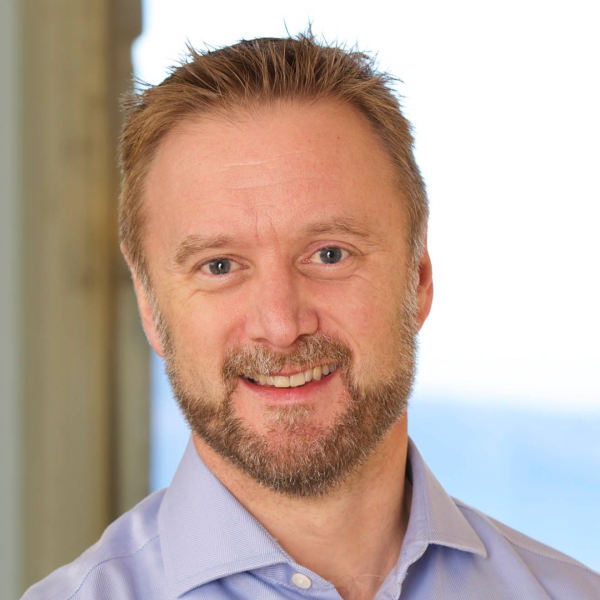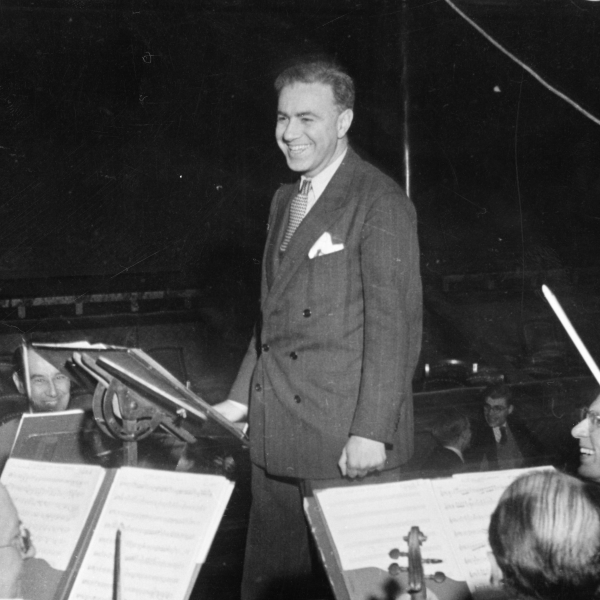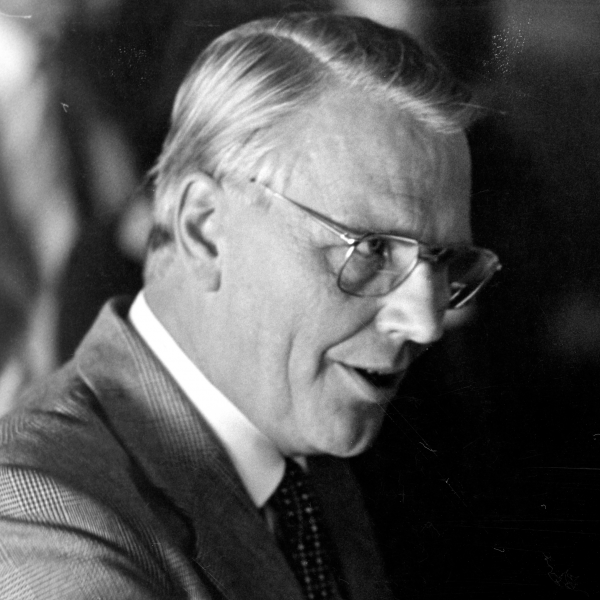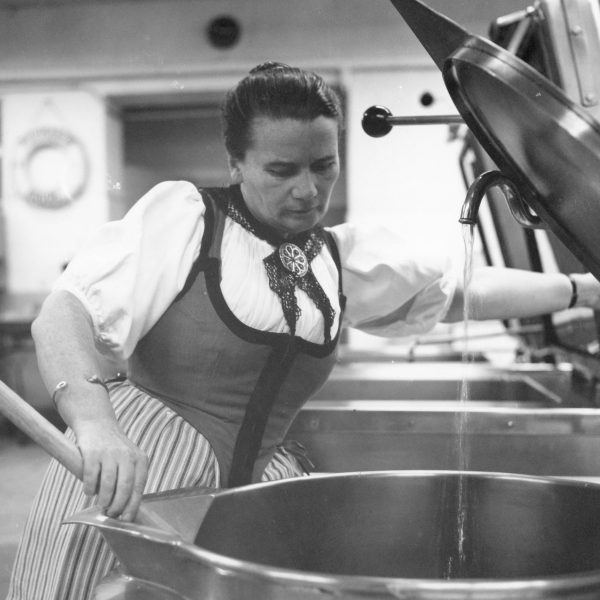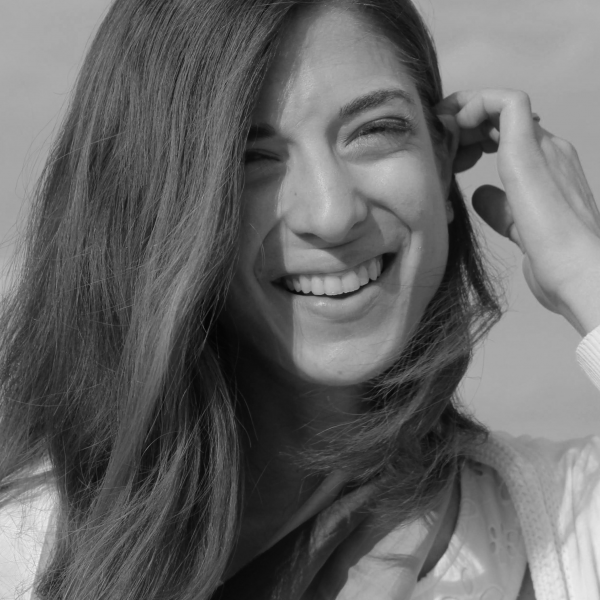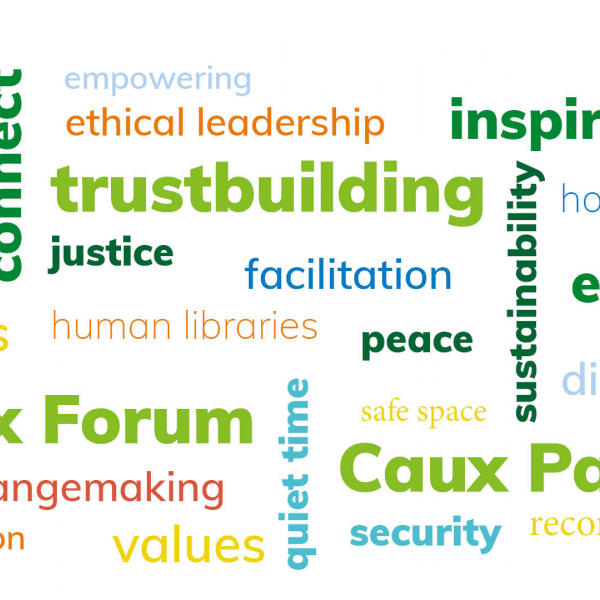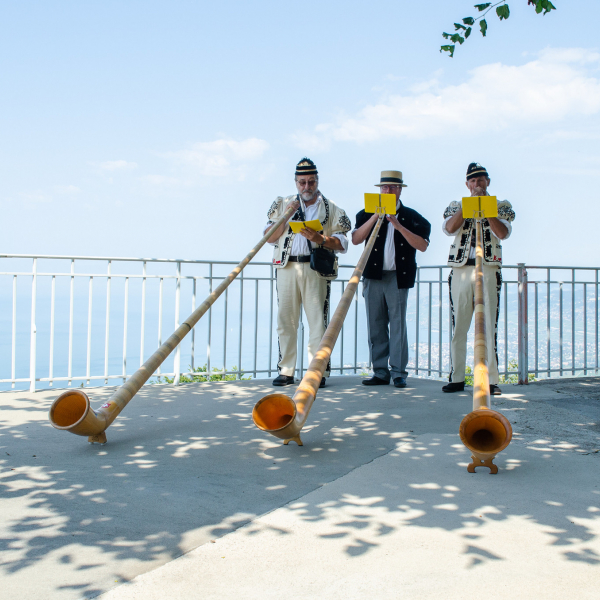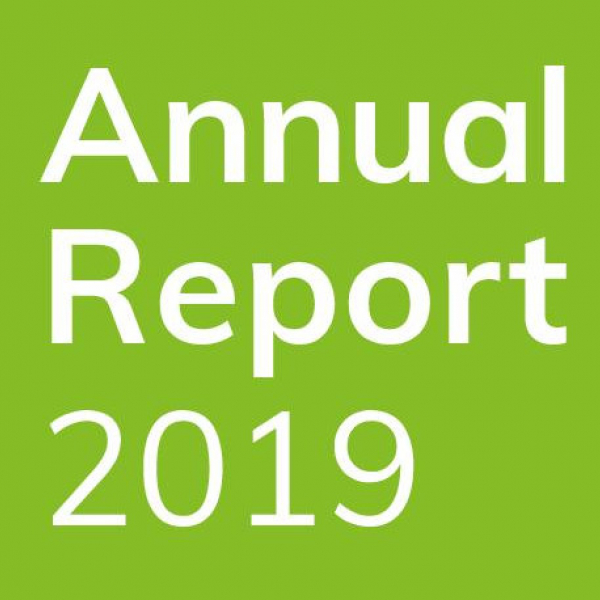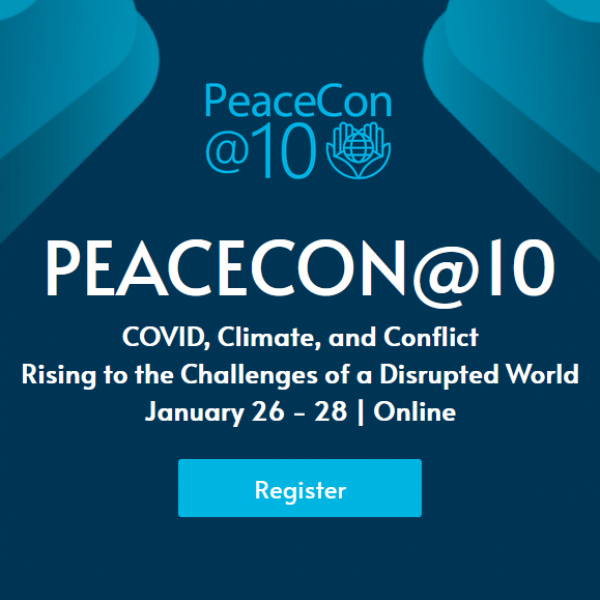The UN’s fourth Sustainable Development Goal is about access to quality education and life-long learning – both essential to bringing positive change into the world.
We are living in times of constant, rapid and profound change, triggered by climate change and digital transformation. To find the right answers to new questions we need to learn more, and maybe differently. Curiosity, creativity and critical thinking are as important as maths, IT, languages skills, etc... We need to be innovative and ingenious to build a just, peaceful and sustainable world for us and our children.
Learning needs well-run education systems, but it comes from inside the human being. It’s fun, but sometimes it’s painful. In preparation for the upcoming Ethical Leadership in Business event in June 2020, we have invited diverse people from around the world to share stories of their learning journeys. These stories offer inspiring insights and invite us to reflect on our education and life-long learning.
‘My Learning Story’ hopes to become a global learning experience, connecting people around the world as they share their stories of what we all do every day: learning to build a brighter future.
Interview with Danièle Castle, Senior Director for Education&Talent at digitalswitzerland
What does lifelong learning look like in practice? How do you organize your #LifelongLearning journey?
Lifelong learning is about formal and informal learning at whatever age. It is about knowledge and skills and the acquisition of both throughout one’s lifetime. I organize my journey according to intrinsic motivation (what I love to learn and do) and extrinsic (what I need for my work or for future projects).
Our current world is being profoundly affected by the global COVID-19 pandemic. What has the pandemic taught you about yourself so far?
I have learned that I have been well-trained in distance working and in being able to move across tools with more or less ease. I have also learned that is it important to have inner resources to cope with social distancing and self-starting work. These are things that I have learned over the years…
What did you have to learn “over-night” to adapt to the situation created by the pandemic?
To use new digital tools that are relevant to the situation today. I am impressed by the range of creativity deployed by individuals and companies to deal with the situation.
The digitalization of workplaces and homes has been rolled out within 24 hours. What did Swiss businesses need to learn urgently?
Large businesses have been digitalized for a while. The SMEs in Switzerland, which form the backbone of the economy, were by far not digitalized enough. So for example, small shops that did not have a website to order goods from, or did not have a central email for orders, found themselves scrambling to develop a website or fid systems to provide order fulfilment. In the training field, the umbrella federation of adult trainers organized a few seminars online to help adult trainers switch to online training and these were simply oversubscribed and had to be run many more times than anticipated. Swiss businesses now understand that the world has changed and with the challenges ahead will have to adapt to digitalization much faster than anticipated.
What does the digital divide in Switzerland look like? Have you heard of spontaneous initiatives to bridge this divide?
According to Swiss sociologist Luc Vodoz, there are three levels of digital divide. To simplify, the first is access, being able to switch on and off a machine. The second is carrying out simple tasks such as writing an email, surfing the web. The last is advanced use, i.e. the ability to find and interpret information correctly, to work across apps and programmes by applying principles etc. The digital divide affects people all over the world, including Switzerland. Take for example the elderly, who grew up without all this technology. Can they e-bank? Can they e-vote? Many cannot. Swisscom and Pro Senectute are running courses for these populations. Google runs courses for all ages, on privacy, security and such thematics. In schools there is a lot of work being done on fake news and identifying reliable sources of information.
Working effectively from home not only demands digital skills but also the capacity to regulate one’s emotions, to set priorities and to self-motivate. Have you come across any best practices of businesses supporting their employees in becoming better remote workers?
digitalswitzerland’s CEO is currently compiling a series on best practices, which should begin soon. Within our group we have used the time to organize cross-sectional brainstorming sessions, have online coffees, rethink some activities and many companies are doing the same.
What do you think are the major barriers to lifelong learning here in Switzerland?
That is a big question! For some it is time, for some money, for some it is not knowing what to focus on in the light of a career path, for some it is the need for certification…. The barriers are many and varied. However, digitalswitzerland has set up a Boost programme, supported by the Hirschmann Foundation, to help people access online education and encourage them to use this strange time to perhaps think of following some courses.
In your opinion, how will the concept of lifelong learning evolve due to the COVID-19 pandemic experience?
I truly hope it will, as the economic prognosis looks grim. People will need to upskill, reskill and perhaps requalify and for that lifelong learning is essential.
How does digitalswitzerland support businesses to improve lifelong learning?
digitalswitzerland is an association and has as members large corporations, SMEs, NGOs, academia and cantons. We have launched a national campaign to raise awareness and with the SAV/UPS asked our and their members to sign a pledge committing to devote resources to lifelong learning. We also have a Boost programme currently running to help companies upskill employees. We continue to work on awareness and will also be carrying out a study later this year with several partners to identify what the barriers to lifelong learning are for SMEs in Switzerland.
How do you learn all life long?
The basis is to learn how to learn. This must be practiced in early years, at school and university.
What do you want to learn but haven’t yet dared to?
Medicine – my science and maths were never good enough!
What has life taught you so far?
That is a vast question that may take many hours to answer! I guess that the most important is to value family and friends, be resilient, keep learning….
Who is your best teacher
My best teachers are my children, sisters, friends and colleagues.
Is there anything you’ve had to unlearn?
Yes lots. Business has changed and therefore so has management. The upcoming generations seek more value-based work, more equal treatment and more work/life balance as a vast generalization.
What lessons have you learnt from failure?
Not to repeat the same mistakes.
What will you do first when confinement is over?
Go for a long mountain hike!


